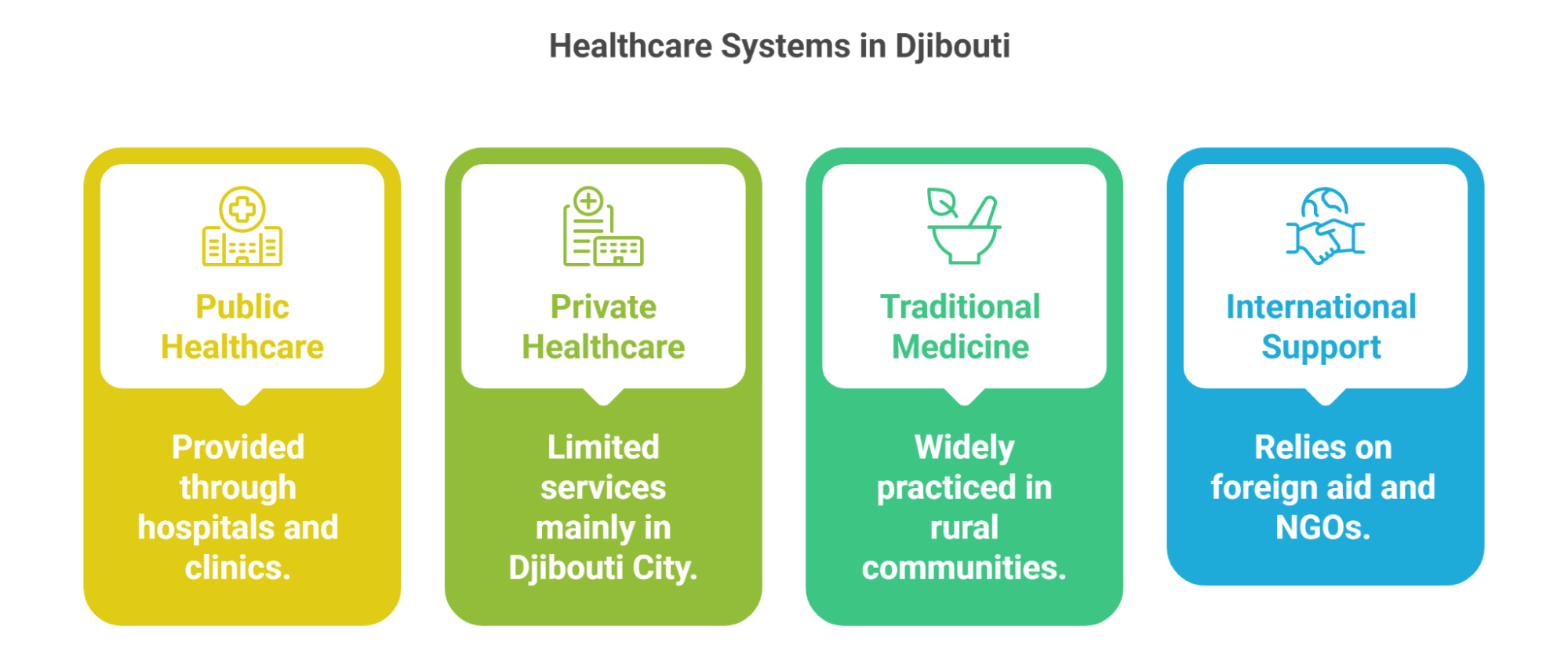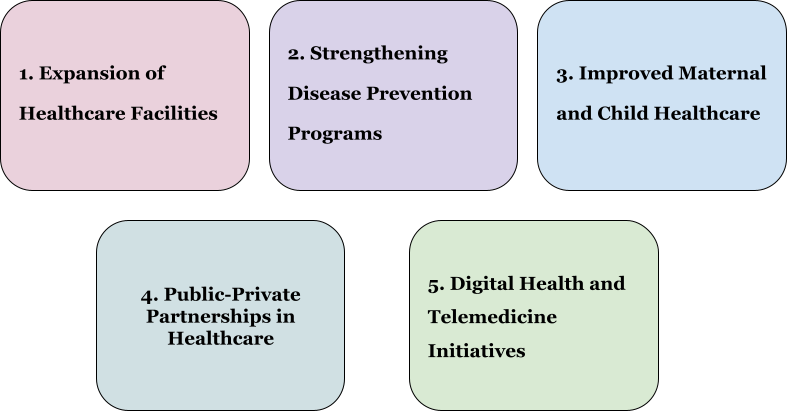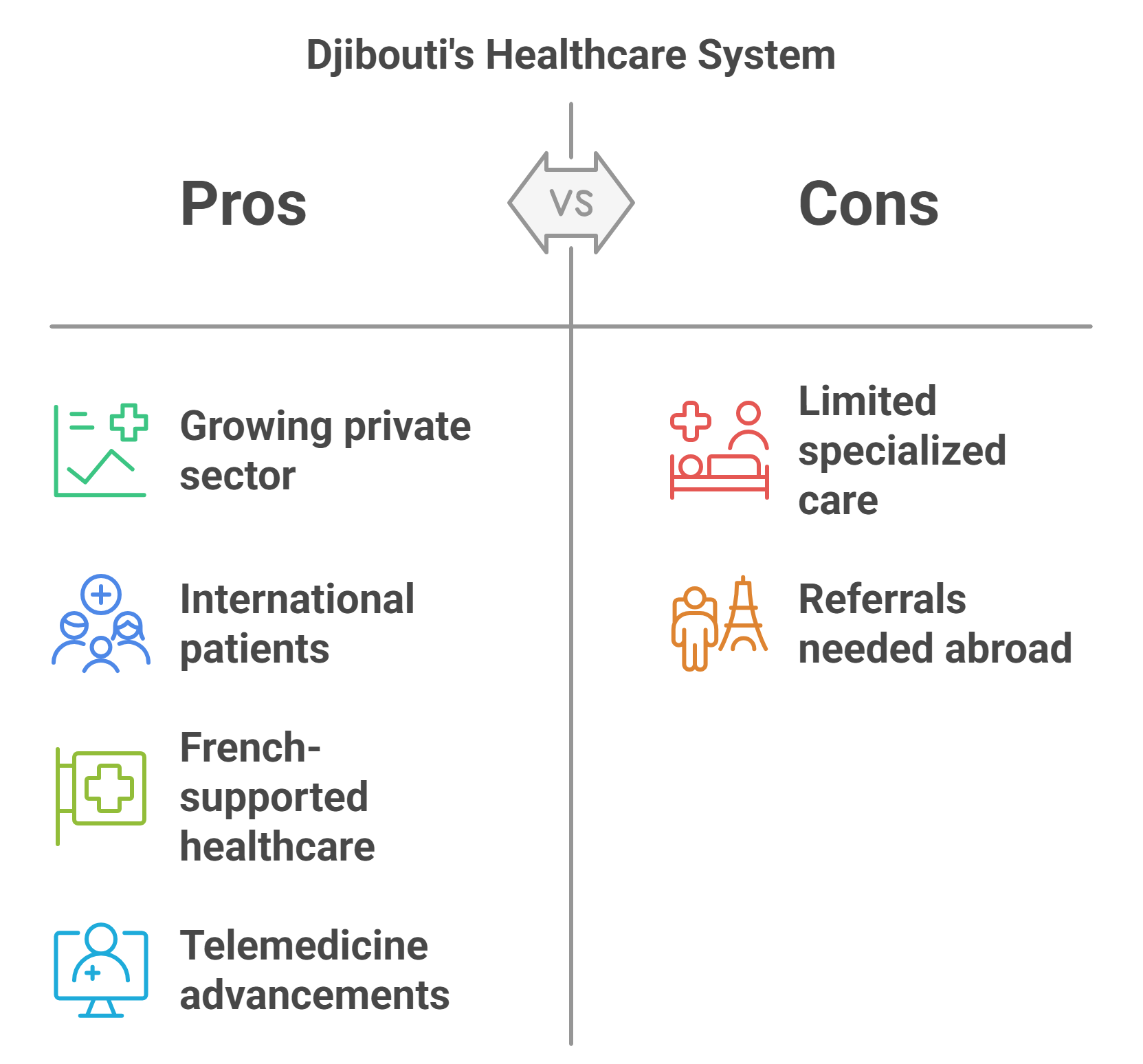Djibouti, a small yet highly important country in the Horn of Africa, has been making good progress in its healthcare system despite many challenges. With a people count of about 1.1 million, the country faces difficulties related to facilities, staff shortages, and disease load. However, the government, together with international groups, has put in place reforms to make the healthcare sector stronger.
Djibouti’s healthcare system is a mix of public and private healthcare services, with government-funded facilities serving the majority of the population. The Ministry of Health oversees the country’s healthcare policies, focusing on primary healthcare, maternal health, and disease prevention.
The Key Features of Djibouti’s Healthcare System Are:

Djibouti’s healthcare system has a mix of public hospitals, military-backed medical centers, regional hospitals, and community clinics. While the capital, Djibouti City, has the best medical facilities, care in rural areas is more basic. Here are some key facilities:
Djibouti’s system has public and private centers, each with its own strengths and limits. Public care is easier to reach and cheaper, while private places give higher-quality help but cost more.
Here are the Key Differences Between Public and Private Healthcare
|
Aspect |
Public Healthcare |
Private Healthcare |
|
Cost |
Low and subsidized by the government |
High, requires out-of-pocket payments or private insurance |
|
Quality of Care |
Basic care, often lacks advanced treatment |
Higher-quality services, specialized treatments available |
|
Wait Times |
Long due to high patient volume |
Shorter wait times and faster service |
|
Availability of Specialists |
Limited, mostly general practitioners |
More specialists and modern medical procedures |
|
Medical Equipment |
Often outdated, limited availability |
Better-equipped with modern facilities |

Djibouti faces health challenges from its hot weather, limited facilities, and spread of infectious diseases. Below are some common issues:
The government and international groups are working to boost healthcare services, grow shot programs, and raise public health knowledge to face these challenges.
Djibouti’s healthcare sector has seen big gains in recent years, focusing on wider access, better disease stopping, and better mother and child care. The government, with international groups and private backers, has introduced reforms to strengthen the country’s health facilities.

The government, with international donors, has built new hospitals and clinics in areas that were left out. Mobile health units now reach remote communities.
Shot campaigns have cut polio, measles, and malaria cases. HIV/AIDS awareness drives have also grown, giving better access to drug treatment (ART).
UNICEF and WHO have teamed up with the government to boost mother health services and nutrition plans. New steps focus on cutting infant death rates and encouraging breastfeeding and child nutrition.
Private money in clinics, diagnostic centers, and telemedicine is widening access to expert care. Drug imports have grown, making medicines easier to get.
Telemedicine services are starting to close the gap between city and rural care. Patient data systems (HIS) are in development to better manage records and track diseases.

Djibouti’s health sector is going through big reforms to raise access, quality, and expert services. The government, with international partners, is putting money into universal health care, medical training, emergency services, and clean water plans to fix gaps and boost care delivery.
Here are the Key Initiatives and Future Prospects

Djibouti is not yet a top spot for medical travel, but the country is slowly improving its health facilities to draw regional patients. While advanced centers stay scarce, Djibouti’s location, growing private sector, and rising ties with international groups make it an up-and-coming health service hub.
Key Factors Affecting Medical Tourism in Djibouti Include:

Future Prospects in Djibouti Medical Tourism
With steady investment in health facilities, staff training, and public-private partnerships, Djibouti could grow its medical travel sector by offering affordable, quality treatments in the region.
Content Disclaimer: While this information was last updated in January 2026, we strongly suggest confirming all travel details with the appropriate governmental agencies, embassies, and airlines.
Step1: Complete the online application form with your personal details and passport information.
Step2: Proceed to securely pay online using your credit card.
Step3: Check your email for payment confirmation and receipt of your Djibouti eVisa, which will be sent electronically.